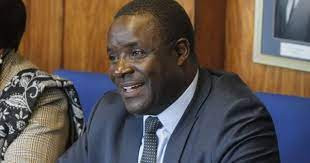
PRESIDENTIAL spokesperson George Charamba wants President Emmerson Mnangagwa to use his power and bring Harare under direct State administration. The reasons: Infighting in the opposition Citizens Coalition for Change (CCC) and the surge in confirmed cholera cases in the former sunshine city.
“With the paralysis which Triple C infighting has brought on city of Harare and given the raging cholera pandemic, it is about time Local Government minister (Winston Chitando) approached his Excellency (President Emmerson Mnangagwa) with the proposal to use presidential powers to bring Harare municipality under direct State administration. There is a good case now using the public health argument,” he wrote on micro-blogging site X.
That the CCC is burning is not in dispute. What is in dispute is what has caused the conflagration in the opposition formation. In the court of public opinion, the ruling Zanu PF has a hand in the recalls of lawmakers and councillors by self-imposed CCC interim secretary-general Sengezo Tshabangu.
Harare is now a cholera hotspot. This means that it is no longer the duty of the local authority alone to fight the waterborne disease. Harare needs 350 megalitres of water daily to supply to residents. It has failed to do so due to shortage of resources to treat the water.
Last year, government said it would buy water treatment chemicals for Harare. The pledge remains unfulfilled as water shortage persists. In November, last year, the City of Harare declared a state of emergency over cholera. Harare is struggling to supply water as it has no resources. The city is, however, owed ZWL$580 billion by residents, parastatals and government.
The best the government can do is to pay what it owes to provide more resources for service delivery.That will restore Harare to its former sunshine city status.
Behind Charamba’s concerns lies the government's half-hearted approach to devolution and how it wants to control local authorities via the back door.The ruling Zanu PF has struggled to regain control of local authorities in urban areas since the end of commissions.
This has seen the governing party creating havoc in cities with its members accused of selling council land and being behind the vendors that are operating from undesignated areas.
- NoViolet Bulawayo’s new novel is an instant Zimbabwean classic
- Jah Prayzah, Zanu PF rekindles ‘lost love’
- Pomona saga: Harare handed shock US$750k ‘garbage’ bill
- Bank workers appeal to Ncube for tax relief
Keep Reading
It is not the first time that government has threatened to install commissions to run the affairs of local authorities. In September, then Harare Provincial Affairs and Devolution secretary Tafadzwa Muguti said government would not appoint acting mayors in failed councils but would replace them with commissions.
Zimbabwe has travelled that road before where commissions did nothing to improve service delivery other than being avenues for looting by the politically connected.The threats of Harare takeover comes as the government has been slow in implementing devolution in line with the Constitution which came into operation more than a decade ago.
The wheels have been moving slowly in implementing devolution which would see the transfer of powers and responsibilities from central government to provincial councils, metropolitan councils and local authorities.
Last month, Chitando said subsidiary legislation and policy guidelines were being worked on so that the constitutional provisions on devolution are implemented.The fight against cholera does not require a man of the match approach, but all hands on deck.
As Harare City Council’s health services director Prosper Chonzi said in November, “we need to help each other and stop the blame game.”










